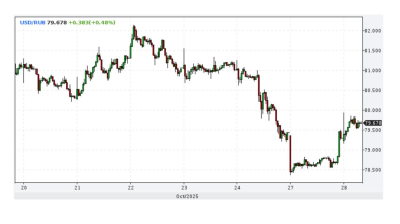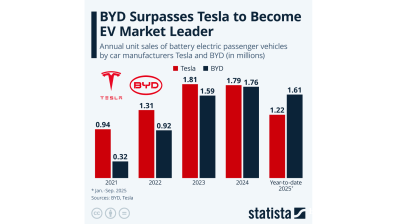Confidence for Ukrainian President Volodymyr Zelenskiy amongst Europeans and support for Ukraine remain high, but they have declined across a slew of countries as the war in Ukraine drags on with no end in sight, according to a new poll released by the Pew research organisation on July 2.
The fall in support for Ukraine contrasts with a slight increase in support for Russia, which is working hard to win over the countries of the Global South to its cause of defying the US led hegemony.
Ukraine fatigue in the west has been building following the failure of the much-hyped summer counter offensive last year and the tangible failure of the sanctions regime to bring the Kremlin to its knees. That has to be taken in the context of the strong growth of the Russian economy, which overtook Japan to become the fourth largest economy in the world according to the World Bank, while Europe teeters on the edge of recession.
The survey comes just before President Biden hosts the Nato summit in Washington on July 9-12, where ongoing support for Ukraine will be a key agenda item.
Survey respondents were also asked their opinion of Nato, with a median view being favourable, though support has ticked down in the US, Spain, the United Kingdom and Sweden – which only became a member in March.
Mixed confidence
“Confidence in the Ukrainian president is mixed across the 35 countries we surveyed. A median of 40% have confidence in him to do the right thing regarding world affairs, while 46% do not,” Pew reports. “Confidence in Zelenskiy has declined significantly over the past year in some countries where trend data is available.”

The views of Zelenskiy are mixed globally but overall support has declined
The share of people with confidence in Zelenskiy differs considerably across countries in Europe and North America. Confidence is highest in Sweden, where eight-in-ten have confidence in him. About two-thirds or more in Canada, the Netherlands and the UK also express confidence. However, six-in-ten or more in Greece, Hungary and Italy do not have confidence in Ukraine’s president.
People in Australia, Bangladesh, Japan, the Philippines and South Korea express more confidence than not in Zelenskiy. The opposite is true in Malaysia, Singapore and Thailand. Confidence in him is mixed or negative across the Middle East-North Africa region, and in the sub-Saharan African and Latin American countries polled.
Poland showed the most drastic decline in opinion towards Zelenskiy and Ukraine. Poles are torn between their antipathy towards Russia and its growing economic rivalry with Ukrainian goods transiting to the EU markets.
“Among Poles, 48% have confidence in Zelenskiy, down from 70% in 2023 (-22 points),” Pew said.
The two countries compete directly in agricultural production and Polish farmers have been particularly hurt by the suspension of import tariffs on Ukrainian agricultural goods since the war began two years ago. Poland also hosts between 1mn and 2mn Ukrainian refugees, which has caused some social tensions thanks to the competition for jobs.
Confidence in him has also decreased by double digits in South Korea (-15) and South Africa (-12). Decreases are smaller but still statistically significant in Australia, France, Germany, the Netherlands, Spain, Sweden and the US.
Split along political support lines
Support also varies by political outlook. Liberals are more than twice as likely as conservatives to express confidence in Zelenskiy. People on the ideological left are also more likely to have confidence in Zelenskyy in Australia, Canada, Germany, Hungary, the Netherlands and Turkey.
Support for Zelenskiy is less strong amongst right-wing populist party supporters which are in the ascendancy in Europe following the recent European parliament elections.
In Germany, for example, supporters of Alternative for Germany (AfD) are about half as likely as those who do not support AfD to express confidence in the Ukrainian leader (31% vs. 61%). In some cases, the pattern is reversed: Spanish supporters of the right-wing populist party Vox are more confident in Zelenskiy than non-supporters.
In the US support for Ukraine is also sharply divided along party lines with Republicans less supportive of Ukraine than Democrats. In a survey published in May, 49% of Republicans and those who lean Republican said the US provides too much support to Ukraine, compared to 16% of Democrats or those who lean Democrat.
This pattern is flipped in several countries. In Bangladesh, Brazil, Colombia, Greece, Mexico, South Korea and Spain, people on the ideological right are more confident in Zelenskiy than those on the left.
Conversely, while 65% of respondents hold a negative view of Putin since Russia invaded Ukraine in February 2022, opinions have "warmed slightly" in several countries. Younger adults are more likely than older people to have a favourable opinion of Russia. For instance, in Peru, 63% of adults under 35 have a positive opinion of Russia, compared to 31% of adults aged 50 and older.
In Germany, confidence in Putin has risen by 9 points, and favourable views towards Russia have increased by 5 points since 2023. Argentina has also seen an 11-point increase in favourable views towards Russia and a 9-point increase in confidence in Putin over the past year. “Rising shares of right-wing populists are confident in Putin in several countries, including France, Germany, Hungary, the Netherlands, Sweden and the UK,” the survey found.
Doing enough?
Pew asked people in four countries – Hungary, Poland, Turkey and the US – how they view their nation’s level of support for Ukraine.
In Hungary and Turkey, the most common view is that their country is providing about the right amount of support to Ukraine (61% and 46% respectively).
People in Poland are split, with nearly identical shares saying their country is providing too much (44%) or the right amount of support (45%) to Ukraine. Only 6% say Poland is not providing enough aid to Ukraine.
In the US, 31% of Americans say their country is providing too much support to Ukraine, 24% say it is not providing enough and 25% say it is giving about the right amount.
“The US is the only place surveyed where there are significant differences on this question by ideology: 51% of Americans who place themselves on the right say the U.S. is providing too much support to Ukraine, compared with only 13% among those on the left,” Pew said.
Nato still positive
Attitudes towards Nato remain generally positive worldwide, with surprising increases recorded in Turkey and Hungary: 42% of respondents in Turkey approve of Nato now, up from 21% in 2019. Hungary has also shown an increasingly positive view towards Nato, with more than 8 in 10 adults considering the alliance important for their country’s security.
Data

Ruble strengthens as sanctioned oil companies repatriate cash
The Russian ruble strengthened after the Trump administration imposed oil sanctions on Russia’s leading oil companies, extending a rally that began after the Biden administration imposed oil sanctions on Russia in January.

Russia's central bank cuts rates by 50bp to 16.5%
The Central Bank of Russia (CBR) cut rates by 50bp on October 24 to 16.5% in an effort to boost flagging growth despite fears of a revival of inflationary pressure due to an upcoming two percentage point hike in the planned VAT rates.

Ukraine's trade deficit doubles to $42bn putting new pressure on an already strained economy
Ukraine’s trade deficit has doubled to $42bn as exports fall and imports balloon. The balance of payments deficit is starting to turn into a serious problem that could undermine the country’s macroeconomic stability.

BYD surpasses Tesla to become EV market leader – Statista
While Chinese manufacturer BYD already pulled ahead of Tesla in production volume last year, with 1,777,965 battery electric vehicles (BEV) produced in 2024 (4,500 more than Tesla), the American manufacturer remained ahead in sales.



